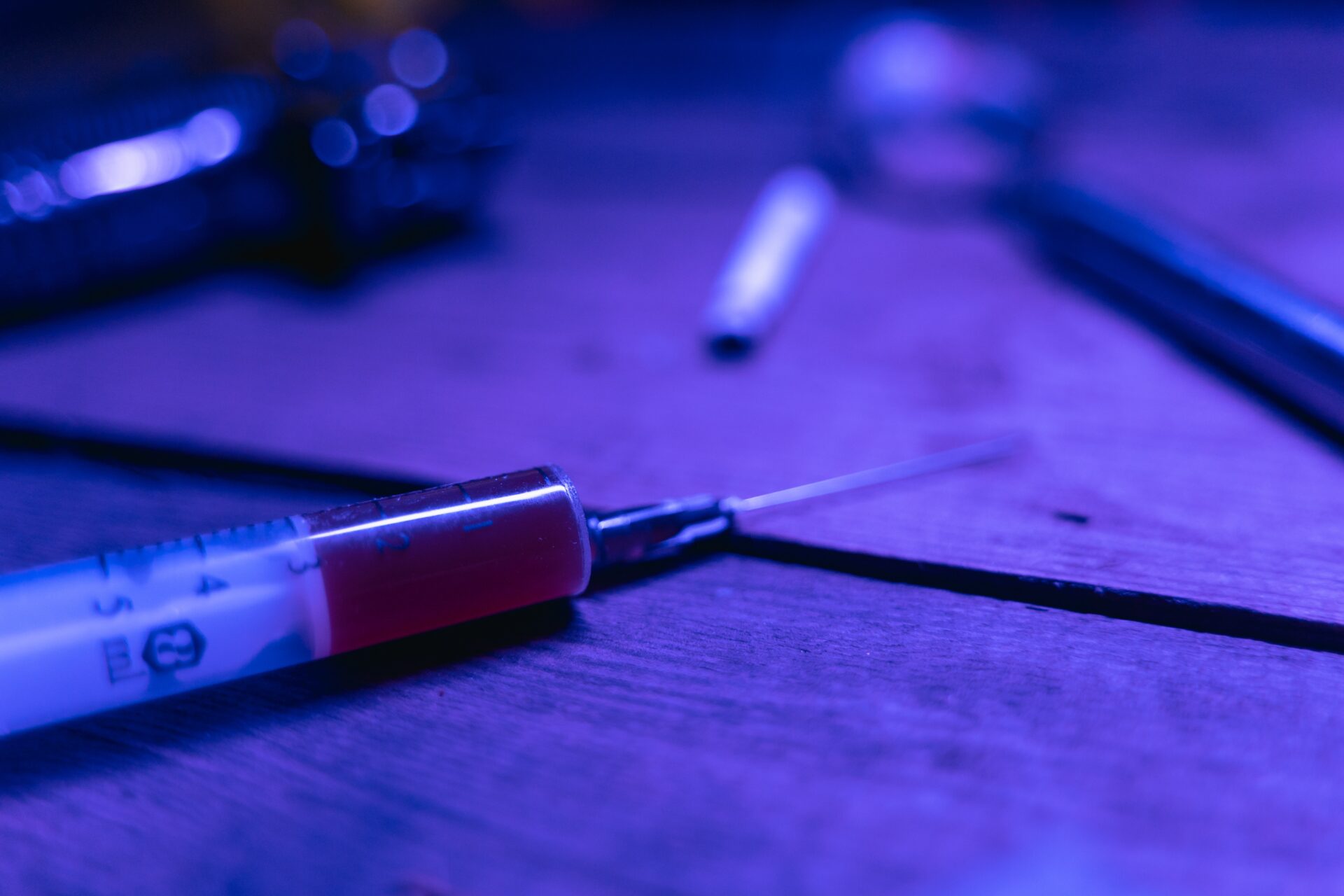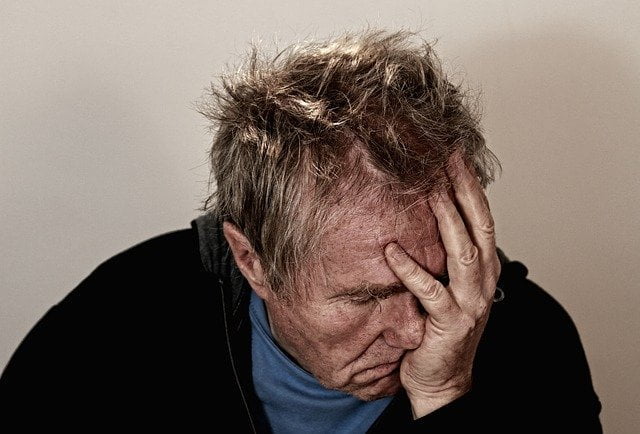Drug & Alcohol Rehab in Lancaster
Quick links for drug and alcohol rehab in Lancaster
- Drug & Alcohol Statistics in Lancaster
- Inpatient Treatment at a Drug & Alcohol Rehab in Lancaster
- Therapeutic Methods Used at Drug & Alcohol Rehab in Lancaster
- Staging an Intervention For Drug and Alcohol Rehab in Lancaster
- Will Alcohol Rehab in Lancaster Help Me to Drink Normally?
- What Happens After Drug and Alcohol Rehab in Lancaster?
Falling into drug and alcohol addiction is not a life sentence. Fortunately, you can fight addiction and win.
With the numerous centres for drug rehab and alcohol rehab in Lancaster, you can get the necessary help you need.
For a majority of drug and alcohol addiction sufferers, there always comes a time when the need to quit becomes stronger than the need to abuse.
However, these moments are often short-lived, and that is why acting on them as soon as possible is necessary for a viable opportunity at recovering from addiction.
To learn more about the disease of addiction and to begin discovering the kind of person-centred care that a drug and alcohol rehab in Lancaster can offer, call us on 0800 088 66 86
Drug & Alcohol Statistics in Lancaster

Picture of needles and pills
Neighbouring larger cities such as Manchester and Leeds while also a University city itself, Lancaster has experienced various community-wide issues due to prevalent substance misuse.
As with other UK localities, Lancaster encounters problems relating to economic deprivation, increased crime, and ill health, all of which are exacerbated by drug and alcohol addiction.
The Lancaster District Community Safety Partnership recently published a worrying report highlighting the plight of its local population.
In 2021, it was noted that alcohol-related admissions in Lancaster’s hospitals were higher than the average for England, and are increasing each year.
In another report drawn up by the Lancashire government, it was revealed that in 2020 there were 9,000 alcohol-specific hospital admissions recorded in the county, with Lancaster accounting for 681 of this figure.
Not only does this shed light on the burden placed on NHS services, but it also highlights the plight of local families and victims who should be receiving care at a drug and alcohol rehab in Lancaster.
In terms of crime and abuse, it has been estimated that around 25% of domestic violence cases in the city are related to alcohol.
Lancaster and Lancashire as a whole suffer from a significant rate of drug and alcohol crime that emphasises the importance of proper rehab treatment:
| Drug and Alcohol Crime Statistics in Lancaster and Lancashire (2022-2023) | Value |
|---|---|
| Annual Crime Rate in Lancaster and Lancashire | 1.9 crimes per 1000 workday people |
| Crime Rate Compared to National | 70% |
| Drug and Alcohol Crime Percentage | 1.6% |
| Total Drug and Alcohol Crimes in Lancaster and Lancashire | 2.8k |
| Year-over-Year Increase in Drug and Alcohol Crimes | 6.3% |
| Drug and Alcohol Crime Rate in Lancaster and Lancashire | 1.9 crimes per 1,000 working people per annum |
| Rank in England and Wales Counties | 18 out of 54 counties |
Moreover, the general life expectancy of residents has been lowered by 9.5 years for men and 7.1 years for women due to addiction-related deprivation.
For more information on drug and alcohol rehab in Lancaster, contact us today on 0800 088 66 86
Physical & Psychological Symptoms of Drug & Alcohol Addiction

Picture of a man looking tired at a drug and alcohol rehab in Lancaster
Addiction can come in many different forms, including substance addictions both physical and psychological, and behavioural addictions concerning specific acts (gambling addiciton, shopping addiction, sex addiction, etc.)
As a chronic illness governed by many variables, it can be hard to pin down the symptoms of Substance Use Disorder (SUD). Those afflicted with drug or alcohol addiction undergo various physiological changes which leave them vulnerable to mental and physical side effects.
These adverse symptoms can occur when someone is regularly under the influence of substances, or when they attempt to stay sober without medical support.
These effects can come from the abuse of a wide range of different substances, including
Withdrawal symptoms occur when long-term drug or alcohol users abstain all of a sudden. Because their tolerance has built over many months or years, their bodies will struggle to function when substance use ceases.
Adverse symptoms usually start around 24 hours after someone’s last drug dose or alcoholic drink: ranging from moderate discomfort to life-threatening conditions.
A collection of common drug and alcohol withdrawal symptoms include:
- Abdominal cramping
- Vomiting
- Headaches
- Fatigue
- Rapid heart rate and palpitations
- Delirium tremens
- Wernicke’s Encephalopathy
Alcohol addiction in particular carries a higher risk of cardiovascular collapse and seizures if detox isn’t managed properly. As such, patients must undergo a medicated alcohol detox at a drug and alcohol rehab in Lancaster to safely pass through the early stages of recovery.
When you suddenly stop drinking after drinking alcohol heavily (classed by the NHS as more than 14 units per week) for a prolonged period of time, your body begins a life-threatening process of alcohol withdrawal.
Perhaps the most common medication used during alcohol withdrawal is a medication called Librium, also known as Chlordiazepoxide.
Another medication used to help stop drinking is known as Acamprosate (Campral®), which helps rebalance the chemicals in the brain that have been damaged by alcohol.
A medically assisted detox allows patients to be kept safe and monitored consistently throughout the withdrawal process.
Alcoholism can also cause anxiety and depression, which means you might be able to get prescribed medications such as an antidepressant like nefazodone, desipramine, or imipramine.
The opioid antagonist Naltrexone can also be good for cutting alcohol out of your life as it decreases the alcohol you consume.
As a result, they’ll have the best start possible to future therapeutic interventions and relapse prevention planning at the rehab clinic of their choice.
As for your body’s recovery after drinking alcohol, damaged organs may regain function partially or heal altogether, depending on your state and whether you’ve had a relapse.
It is incredibly important to begin your recovery now, as being an alcoholic is thought to drastically lower your age of death. The average age of death for an alcoholic is 47–53 years in men and 50–58 years in women.
Alcohol addiction is unfortunately common, with a study by Robin Room, Thomas Babor and Jürgen Rehm revealing that ‘4% of the global burden of disease is attributable to alcohol’, accounting for almost as much death and disability as tobacco and high blood pressure (hypertension) globally.
If you go on to have CBT therapy for alcohol addiction after your rehab treatment, a report has shown that the success rate is 83.87%. Therapy after treatment is therefore highly recommended.
For more information on drug and alcohol rehab in Lancaster, contact us today on 0800 088 66 86
Inpatient Treatment at a Drug & Alcohol Rehab in Lancaster

Patient being comforted by a therapist at a drug and alcohol rehab clinic in Lancaster
Offering room and board for the duration of treatment, inpatient rehab programmes are considered by experts to be the best SUD recovery option.
Undergoing recovery at a residential drug and alcohol rehab in Lancaster means patients receive tailored treatment and a high level of personalised care.
Following a thorough health evaluation and assessment of their needs, patients at a private rehab centre are required to stay overnight for a minimum of 30 days depending on how severe their condition is.
Rather than trying to stay sober alone, they’ll be able to undertake a supervised detox before experiencing a range of bespoke therapies, relapse prevention planning, and holistic counselling.
This consideration of each patient’s unique needs is especially important if they are suffering from co-morbid mental health issues.
Common mental health issues faced by those suffering from addiction include:
- Anxiety
- Depression
- Schizophrenia
- Bipolar Disorder
- Borderline Personality Disorder (BDP)
- Post Traumatic Stress Disorder (PTSD)
- Codependency
- Eating Disorders
- Obsessive Compulsive Disorder (OCD)
For those battling both SUD and another mental health illness – a condition known as dual diagnosis – receiving treatment for both conditions as an inpatient at rehab will maximise their chances of recovery.
According to the NESARC data, 28.6% of people with a current alcohol use disorder diagnosis had at least one personality disorder like bipolar disorder.
Physical issues are also often present alongside addiction, including:
- Liver failure
- Hepatitis
- Heart issues
- Blood pressure issues
- Brain damage
- Gastrointestinal issues
One thing that each rehab will certainly want to clarify is if there are any additional physical or mental conditions present, which could mean they would need to implement addiction steps or psychiatric treatments in order to carry out detox safely.
Aside from co-occurring disorders, many factors play a part when deciding whether to attend rehab as an inpatient or return home as an outpatient.
Addicted individuals should closely consider their relapse potential, pre-existing biomedical complications, and whether their living environment might impede their recovery.
It may be that they are exposed to addictive substances in their home environment, or lack a supportive familial network to help them stay sober.
However, by choosing a residential rehab programme, individuals can remain in a safe, sobriety-supporting environment all while tackling the unresolved causes of their addiction.
For more information on drug and alcohol rehab in Lancaster, contact us today on 0800 088 66 86
Other Organisations That Can Help in Lancaster
Below is a list of other organisations that offer free support and advice for addiction in and around Lancaster:
1. The Well Communities
Address: First Floor, West End Community Centre, Westminster Rd, Morecambe LA4 4JE
Telephone: 01524 415 278
Website: http://www.thewellcommunities.co.uk/
2. Young Addaction | North Lancashire
Address: YMCA, New Rd, Lancaster LA1 1EZ
Telephone: 01524 239 570
Website: https://www.wearewithyou.org.uk/services/lancashire-for-young-people-lancaster/
3. CAMHS
Address: The Ross Childrens Centre, 160 Euston Rd, Morecambe LA4 5LE
Telephone: 01524 550 650
Website: https://mft.nhs.uk/rmch/services/camhs/
You can also reach out to a number of helplines, including Mind UK, YoungMinds, Rethink Mental Illness, Samaritans, National Institute for Health and Care Excellence (NICE), Change Grow Live and Papyrus.
The NHS (National Health Service) are also there to help you, as are various NHS Foundation Trusts.
Therapeutic Methods Used at Drug & Alcohol Rehab in Lancaster

Therapist and patient talking together at a drug and alcohol rehab in Lancaster
When one begins to prepare for addiction treatment in Lancaster, a series of psychiatric assessments will be used to assess your specific needs.
This will often include systems such as the Alcohol Use Disorders Identification Test (AUDIT), the American Society of Addiction Medicine (ASAM) Criteria, the CAGE Questionnaire, and the DSM-5.
All these areas will help give the rehab staff and any attendant psychiatrist an overall picture of precisely what you need to beat addiction.
Below, we outline the various types of therapy used at drug and alcohol rehab in Lancaster:
1. Cognitive Behavioural Therapy (CBT)
CBT has been proven as an effective SUD treatment time and time again, following its success in facilitating depression and anxiety recovery.
Often described as a form of “guided discovery”, Cognitive Behavioural Therapy is pone of several talking therapies that involves collaboration between the patient and therapist as they interrogate the long-standing thought patterns behind SUD.
CBT interventions at a drug and alcohol rehab in Lancaster help patients understand why certain thoughts and feelings are triggered in certain situations, such as before substance use.
With the help of their therapist, patients work towards identifying these thoughts, often described as cognitive distortions, and finding ways to rewire them.
Therapy sessions combine two psychotherapeutic concepts: cognition (our internal thoughts and emotions), and behaviourism (our actions in the world).
Through a variety of CBT techniques, addicted individuals learn how to manage their inner world so that the actions they take in the outside world are more positive.
Commonly utilised techniques include identifying and challenging styles of thinking, mindfulness, muscle relaxation, and behavioural activation.
Types of exposure therapy can also be integrated into CBT sessions to help patients face their fears in a structured environment.
2. Dialectical Behavioural Therapy (DBT)
Like CBT, Dialectical Behavioural Therapy places great emphasis on talking and communication: using these elements to help patients face challenges related to their SUD.
However, DBT differs from other forms of behavioural therapy in its primary focus on the emotional and social sides of recovery.
DBT teaches patients to accept whom they are despite the addiction-related challenges they face while encouraging them to improve their behaviours and ways of coping.
While it may seem odd to combine the ideas of change and acceptance, it’s this unison of opposing concepts that form the core principles of DBT.
DBT sessions at a drug and alcohol rehab in Lancaster focus on developing skills in four key areas: interpersonal effectiveness, emotional regulation, mindfulness, and distress tolerance.
All of these combine to help subjects deal with harmful emotions effectively, and cultivate healthier, substance fee relationships with those important to them.
Another key difference between CBT and DBT is that the latter is efficacious in group scenarios. Collective workshops in rehab consist of those also participating in one-to-one DBT as part of their addiction treatment.
Together, participants can practice the skills they learnt with their counsellor and workshop scenarios such as relapse triggers.
3. Family Therapy (FT)
When one member of a family is suffering from drug or alcohol addiction, the entire group can fall apart emotionally: causing many experts to call SUD a “family illness”.
As such, Family Therapy at a drug and alcohol rehab in Lancaster is vital for ensuring the long-term recovery of SUD victims and breaking the cycle of addiction.
When a family enters group therapy spurred by their loved one entering rehab for addiction, there may be issues that need resolving.
Oftentimes, families have suffered from broken trust, limited communication, enabling behaviours, and long-standing conflicts either directly or indirectly related to addiction.
To help families heal from the damage caused by SUD, FT therapists will choose a therapeutic strategy that aligns with the group’s needs.
Behavioural contracting, for example, involves helping families cultivate a substance-free home for when they’re addicted loved one returns from rehab.
4. Holistic Therapy (HT)
While Holistic Therapies refuse to treat SUD in a traditional, medication-centric way, they are pivotal to achieving recovery at a drug and alcohol rehab in Lancaster. Alternative therapeutic methods help SUD patients transition into a healthier lifestyle by treating all elements of who they are as individuals.
By paying attention to an individual’s mental, physical, and spiritual welfare, HT aims to treat addiction from a place of mindfulness and self-efficacy, using a variety of different activities to achieve this. Some of the most common approaches utilised in rehab centres include equine therapy, horticultural therapy, tai chi, yoga, acupuncture and meditation.
Creative therapies such as art therapy, sculpture, drama therapy and music therapy are other branches of HT that are used in rehab centres to help patients relax and build up relapse prevention techniques.
By expressing themselves creatively, SUD sufferers can better understand their addiction while working through the negative emotions surrounding their addiction.
Many other forms of addiction treatment can be experienced at drug and alcohol rehab in Lancaster, including:
- Motivational Interviewing (MI)
- Motivational Enhancement Therapy (MET)
- Acceptance and Commitment Therapy (ACT)
- Brief Interventions
- Individual Therapy
- Group Therapy and Group Psychotherapy
- Family Therapy
- Eye Movement Desensitisation and Reprocessing (EMDR)
- Rational Emotive Behaviour Therapy
- Contingency Management
Therapy in general and motivational therapy in particular is about accompanying people in looking at how their substance use has developed and progressed and what changes would be truly best for them.
For more information on drug and alcohol rehab in Lancaster, contact us today on 0800 088 66 86
Rehab for cocaine addiction in Lancaster

Group therapy meeting in progress at a drug and alcohol rehab in Lancaster
An addiction to cocaine does not produce physical dependence, therefore it is not necessary to have a detox.
Going to rehab for cocaine dependence requires time to concentrate on your personal therapy as well as learning methods to identify and avoid triggers.
The use of cocaine or crack cocaine is often linked to particular areas of life such as work pressure or how someone likes to enjoy themselves. Rehab provides a window of time where new ways can be learnt for dealing with stress and breaking the link with old habits.
To begin your recovery journey from cocaine addiction at a rehab in Lancaster today, call us on 0800 088 66 86
Rehab for heroin addiction in Lancaster

Black and white photo of a therapy group hugging at a drug and alcohol rehab in Lancaster
Heroin is highly addictive and the body can very quickly become physically dependent.
The majority of people who come to rehab for heroin addiction will be in need of medical detox to help them break the physical dependence.
A heroin detox nearly always takes longer than a 10-day alcohol detox procedure, as heroin withdrawal can be extremely uncomfortable and dangerous.
The medication (often buprenorphine) is reduced at a slower rate in order to try and make the withdrawal as comfortable as possible, owing to the intensity and dangers of any opioid use disorder.
As with other substances, it is then vital that time is taken by the individual to learn ways of avoiding falling back into heroin use, as well as looking at learning new, healthier coping mechanisms and lifestyle changes. This will all be part of the rehab process.
To begin your recovery journey from heroin addiction at a rehab in Lancaster today, call us on 0800 088 66 86
Rehab for cannabis addiction in Lancaster

Therapist sitting with patients at a drug and alcohol rehab in Lancaster
A cannabis addiction does not require a medical detox. However, breaking a cannabis use disorder still requires a concentrated effort in learning new tools for avoiding falling back into addictive behaviours.
Going to rehab provides a new environment for the addiction sufferer to try and reset their former patterns of behaviour.
Trying to stop cannabis use in one’s own environment can sometimes be far too difficult due to pressures from familiar triggers or from other people.
To begin your recovery journey from cannabis addiction at a rehab in Lancaster today, call us on 0800 088 66 86
Staging an Intervention For Drug and Alcohol Rehab in Lancaster

Two people having a serious conversation at a drug and alcohol rehab in Lancaster
Substance addiction can take a toll on family members in many ways: from unresolved conflict to phases of denial and a lack of accountability.
Perhaps the most distressing situations arise when a SUD victim won’t acknowledge concerns for their wellbeing, or pleas made by loved ones to enter a drug and alcohol rehab in Lancaster.
If you’ve spoken to an addicted loved one about their hazardous substance use with little results, it may be time to consider staging an intervention.
This process can help those with SUD realize the extent of their problem, how it affected those important to them, and how they can access life-saving treatment.
Rather than viewing the process as a chance to vent their frustration, friends, family members, and co-workers of the addicted person should treat the intervention as a time for showing compassion towards their suffering loved one.
The overall aim of intervention meetings is to convince the SUD sufferer that they not only have a problem but that they must accept formal treatment if they are to regain their well-being.
However, Concerned Significant Others (CSOs) shouldn’t simply show up at the intervention location without pre-planning the fine details.
The first step is putting together a team of close friends, associates, and family members who are capable of staying calm and collected throughout difficult conversations.
Conversations had with the addicted individual are the main focus of each meeting, with participants encouraged to prepare a text outlining their concerns and worries.
They may also choose to describe particular instances where their loved one’s addiction was problematic or harmful.
In addition to rehearsing these impact statements, participants must choose where to congregate and select a time when the addicted person is likely to be sober and responsive. Intricate planning is crucial, and it’s for this reason that many family groups seek the help of an intervention specialist.
Engaging a professional in your efforts to get a loved one into treatment makes the process far more likely to succeed. They can help to diffuse tension between family members, keep conversations on track, and choose appropriate treatment at a drug and alcohol rehab in Lancaster.
For more information on drug and alcohol rehab in Lancaster, contact us today on 0800 088 66 86
Will Alcohol Rehab in Lancaster Help Me to Drink Normally?

Woman stood with a cup of coffee looking at the sea
When you attend a drug & alcohol rehab in Lancaster, the aim of the programme will be to help you come to the point of living totally abstinent from drugs and alcohol.
Rehab does not try to help you learn how to ‘control’ your drug and alcohol addiction, whether your issue lay with daily drinking, binge drinking or other problematic substance use.
Abstinence is the only way that can guarantee that the hijacking of the brain by dopamine caused by addictive substances will not happen again.
Experts have agreed that abstinence and permanent sobriety is always the safer and more effective route to addiction recovery.
Abstinence is a key part of any modern drug and alcohol rehab in Lancaster. To find out more, call us today on 0800 088 66 86
What Happens After Drug and Alcohol Rehab in Lancaster?

Outdoor photo of a drug and alcohol rehab centre in Lancaster
It would be nice to think that after spending a few weeks in rehab in Lancaster, a person could confidently feel cured of their substance use disorder. Unfortunately, the nature of this illness is that recovery from it is something that needs to be maintained, and it is not possible to receive a “once and for all” cure.
Maintaining recovery from addiction is not a complicated procedure, it just requires commitment from the individual to do the things that they know will keep them well.
When you are getting ready to leave drug and alcohol rehab in Lancaster, you will be helped to put together a plan for yourself that will include all the things that will help keep addictive behaviours at bay.
Central to this will be looking after your own continued mental and emotional well-being.
For example, you may be offered the possibility of continuing personal therapy. For many people, personal therapy can provide a way of keeping a check on personal welfare during the early months of recovery.
There are a vast array of other services available in Lancaster that your rehab will help you organised.
Most rehabs offer their own forms of ongoing support as part of your aftercare plan, and they will also help you look at what things will be important for you in order to help you stay happy and well, long into the future.
You may be encouraged to attend a local SMART Recovery group or find an Alcoholics Anonymous, Narcotics Anonymous or Cocaine Anonymous meeting near you, where you will be encouraged to lean on a higher power in order to overcome addiction.
For your family or if you are struggling with addiction at a particularly young age, Al-Anon and Alateen groups may be useful to you.
You may also be offered access to sober living houses if you need more space away from old triggers.
Make sure your recovery from addiction lasts – call our team on 0800 088 66 86 to learn more about addiction treatment in Lancaster
Getting Help Today From a Drug and Alcohol Rehab in Lancaster

Two patients holding hands at a drug and alcohol rehab in Lancaster
If you would like to control your emotions and hence your addiction in Lancaster, contact Rehab Recovery today on 0800 088 66 86.
Alternatively, contact us through this website for a free and no pressure assessment. All drug and alcohol rehabs must be registered and audited by the Care Quality Commission (CQC).
We offer rehab services across the UK and near Lancaster, including Cumbria, Morecambe, Fleetwood, Barrow-in-Furness, Kendal, Blackpool, Preston, Ambleside, Blackburn, Burnley, Leeds, Keswick, Sheffield and Chester.
Many of our team have defeated their own personal addiction and so you call for help will be met with utter understanding and compassion.
References
[1] Lancaster 2021: Local Profile https://www.lancashire.gov.uk/media/929941/lancaster-2022.pdf369
[2] Alcohol – Lancashire County Council https://www.lancashire.gov.uk/lancashire-insight/health-and-care/health/lifestyle/alcohol/
[3] Principles of Drug Addiction Treatment: A Research-Based Guide (2nd Ed.) https://books.google.co.th/books?id=mtMdJ3qqSnQC&printsec=frontcover&dq=addiction+treatment&hl=en&sa=X&ved=2ahUKEwiDlMP3zob3AhXiwjgGHYJtDZ8Q6AF6BAgDEAI#v=onepage&q=outpatient&f=false
[4] Residential Addiction Treatment https://www.rehab-recovery.co.uk/addiction-treatments/residential/
[5] Addiction Counselling Competencies: The Knowledge, Skills and Attitudes of Professional Practice https://books.google.co.th/books?id=7UVgsB4tJH4C&pg=PA213&dq=addiction&hl=en&sa=X&ved=2ahUKEwiCmr60lIL3AhUkxDgGHSa2AJEQ6AF6BAgGEAI#v=onepage&q&f=false
[6] Rehab Recovery: DBT For Addiction Treatment https://www.rehab-recovery.co.uk/addiction-treatments/dbt/
[7] Rehab Recovery: Family Addiction Counselling https://www.rehab-recovery.co.uk/addiction-treatments/family-therapy/
[8] Rehab Recovery: Alternative & Holistic Therapies for Addiction https://www.rehab-recovery.co.uk/addiction-treatments/alternative-holistic/
[9] Rehab Recovery: Addiction Intervention https://www.rehab-recovery.co.uk/addiction-treatments/intervention/


